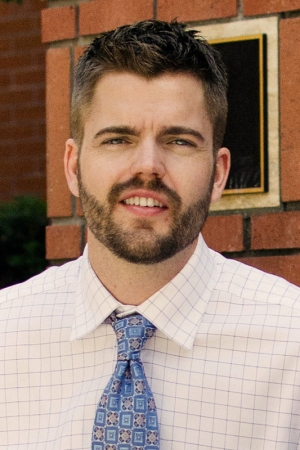Goldbach Works to Break Down Mental Health Stigma in Hollywood
November 11, 2013 / by Charli Engelhorn- Research
Social workers do not typically rub elbows with Hollywood executives and personalities, but USC School of Social Work Assistant Professor Jeremy Goldbach did just that this fall when he received an invitation to join a panel of mental health professionals and artists from the entertainment industry. “Mental Health Goes to Hollywood” was aimed at bringing awareness to the industry concerning issues related to stigma in mental health.
“I was chosen because I work in stigma and discrimination for LGBT, and we discussed how stigma differs in Hollywood depending on fame and status of the individual,” said Goldbach. “These are not two worlds that naturally collide. It was interesting to see the dynamic created when research and entertainment come together.”
The event highlighted a screening of a recent short documentary, “Stranded in Existence,” by director Kola Popoola. The film portrays a young black man in college who becomes depressed and considers ending his life. The story portrays his struggle to deal with stigma from family and the world, in general.
“The film brought in a lot of cultural aspects about stigma, such as the idea that mental illness is a luxury for the rich or that strong Latino or black men can’t have mental illness,” Goldbach said.
Following the film, the eight-member panel convened to discuss the issues brought up in the documentary. Richard Cervantes, CEO of Behavioral Assessment, Inc., one of the co-organizing groups of the event, and a researcher in mental health and stigma reduction, led the discussion. Four members were entertainers, and four were research or mental health professionals. There were also a number of industry and mental health professionals in the audience.
“One thing we asked folks to comment on was their own experiences with mental illness, and the film’s accuracy in portraying the mental health care system,” Cervantes said. “There was a piece of the film that involved a psychologist providing what I would say is fairly accurate information about diagnostics and treatment approaches and options. That was a big part of helping the protagonist get better.”
Cervantes said he wanted to involve artists who have dealt with mental illness in their own lives to demystify mental health and have a lively discussion about treatment. He believes the more members of the guild are involved in these discussions, the more producers will be sensitive to the issue.
“This is one small avenue to breaking down stigma,” said Cervantes, “but we are hoping that part of the change is how mental illness is portrayed in television and film.”
Goldbach said the panel helped him realize how, in many ways, gay rights have advanced through the media.
“I hadn’t really thought about how Hollywood has the ability to change attitudes,” said Goldbach. “They have a powerful influence, and if there was more attention to stigma, how can they change the perception of mental illness through film?”
Because of the success of the first event, Cervantes said more events are being planned to continue the discussions. He believes that bringing these social issues into a public sphere will help create the sort of public education finding success in studies in the United Kingdom and Canada.
“These regions have been able to really change public perceptions and norms in mental health and stigma,” said Cervantes. “I think that getting out into the community and working with entertainers who have had these issues and are brave enough to do what they have had to do to overcome stigma is really moving and visible. We hope education will slowly turn the wheels toward a greater public acceptance of mental illness.”
To reference the work of our faculty online, we ask that you directly quote their work where possible and attribute it to "FACULTY NAME, a professor in the USC Suzanne Dworak-Peck School of Social Work” (LINK: https://dworakpeck.usc.edu)
